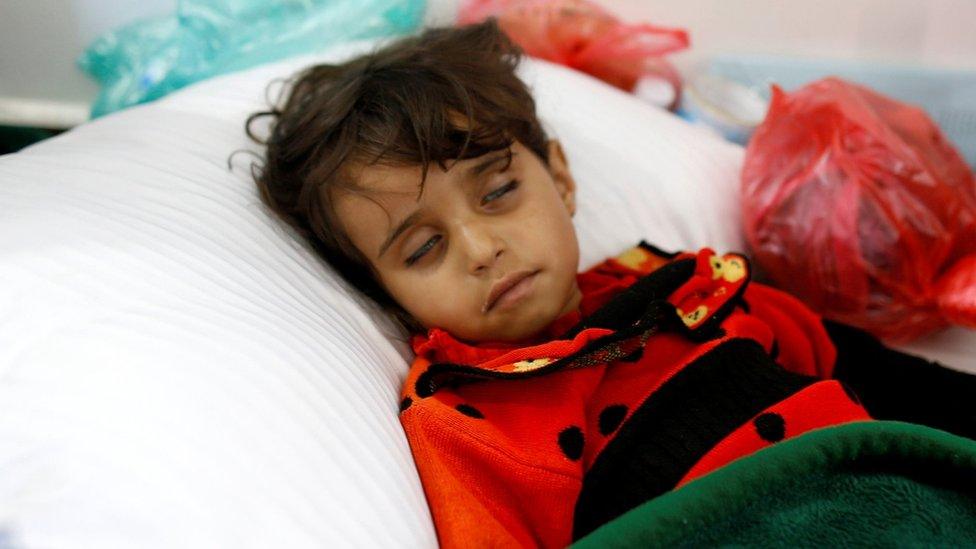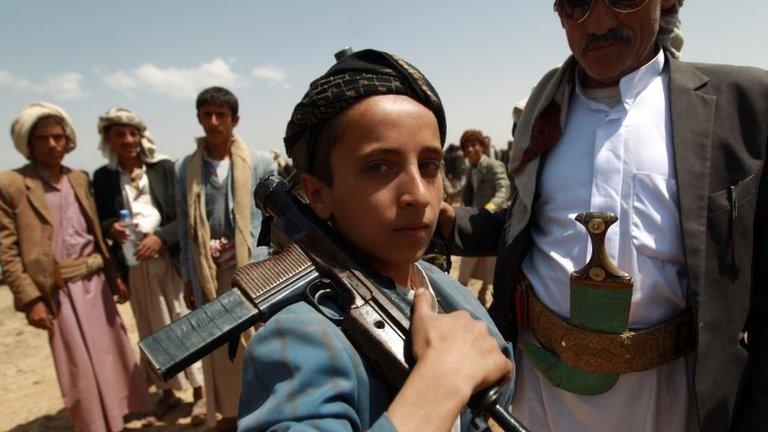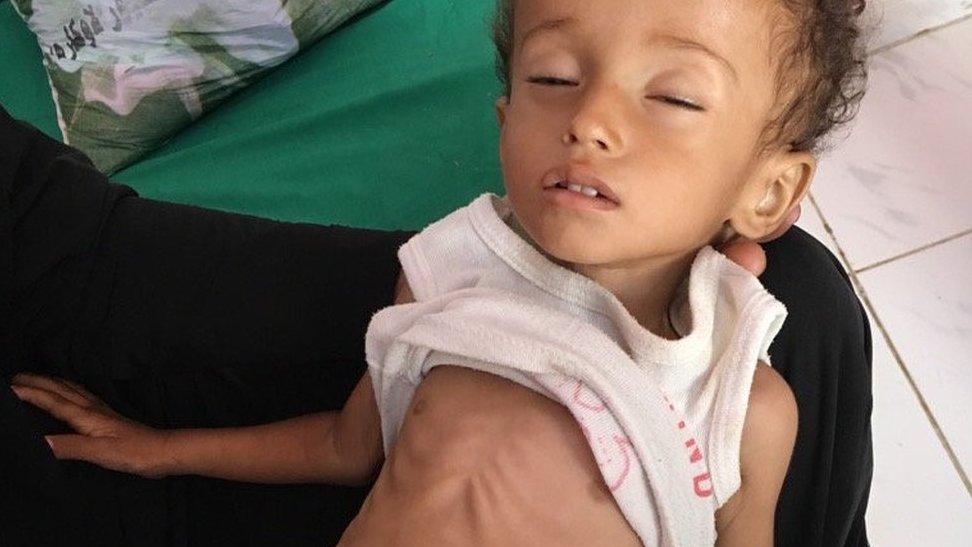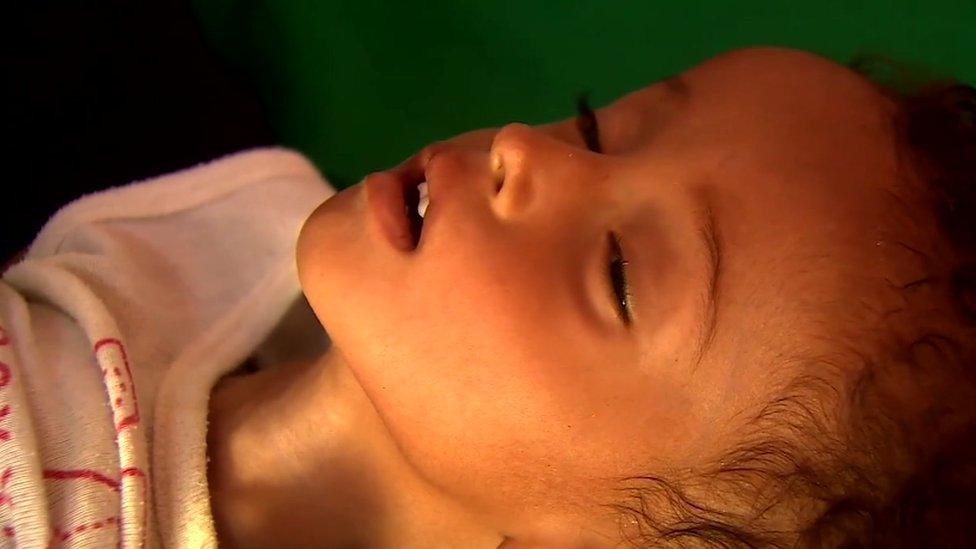Yemen conflict: Cholera risk for more than a million children
- Published

More than a million children in Yemen are at high risk of dying from cholera, says Save the Children.
The charity warns that the children are severely malnourished, and living in some of the areas of the country worst hit by the disease.
The number of people infected with the disease during the country's civil war has already reached more than 430,000.
Malnourished children are at least three times more likely to die if they are infected with cholera.
It is because their immune systems are weakened and they become less capable of fighting off the water-borne disease.
Out of the million severely malnourished children under five living in Yemen's cholera hotspots, the charity says 200,000 are at imminent risk of starving to death.
More than 1,900 people have died of the disease since April, a third of them were under 15 years old.
Cholera is easy to treat, but with two years of war destroying much of the health system, and continued restrictions on urgently needed medical and food supplies, the charity says Yemen's children are "trapped in a cycle of starvation and sickness".
Watch: The reality of life in Yemen
Tamer Kirolos, Save the Children's country director for Yemen, said: "The tragedy is both malnutrition and cholera are easily treatable if you have access to basic healthcare.
"But hospitals and clinics have been destroyed, government health workers haven't been paid for almost a year, and the delivery of vital aid is being obstructed."
The warning comes as a senior UN official in the country described the situation in Yemen as "very bleak" with "no end in sight".
The UN says 70% of the population - about 20 million people - are in need of humanitarian aid and 60% do not know where their next meal is coming from.
Auke Lootsma from the UN Development Programme said the situation was like a bus "racing towards the edge of a cliff."
"Historically, Yemen has been one of the poorest Arab nations, if not the poorest, with poverty and corruption, poor governance and poor infrastructure. The war has simply made it much worse," Mr Lootsma said.
- Published14 April 2023

- Published27 July 2017

- Published27 July 2017
